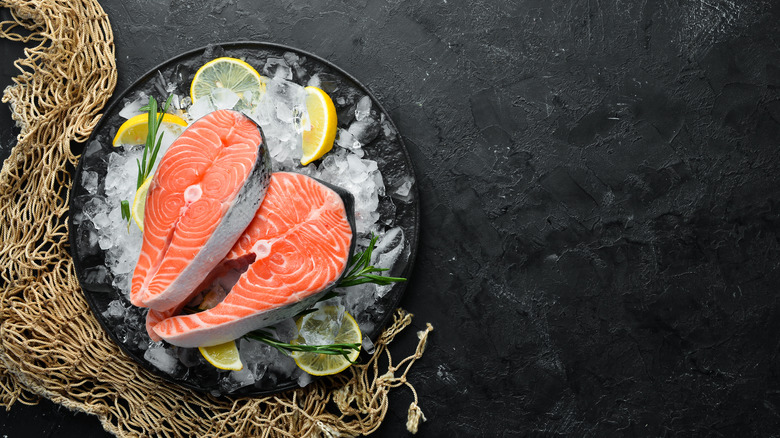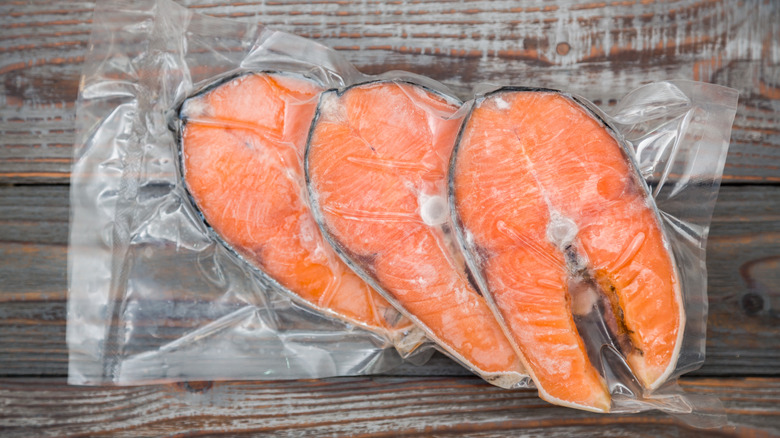The Reason You May Want To Buy Frozen Salmon Instead Of Fresh
When it comes to food, there's a natural assumption that fresh is better than frozen. However, that isn't always the case. Take salmon, for instance. These days, seafood, including salmon, is typically flash frozen right after it's been caught (either on the fishing boat itself or right after the boat docks), preserving it at the peak of freshness.
On the other hand, unless you live near the water and can get fresh salmon off the boat (or from a fishmonger who has), then chances are, that "fresh" salmon you're buying from the seafood counter at your grocery store isn't as fresh as you might think, and was likely frozen at one point and thawed out for display and sale. According to The Better Fish, that fish "could be almost two weeks old due to transport, distributing and processing time." And while it is possible to have fresh salmon even if you live far from any bodies of water, it entails flying that salmon overnight, which adds dramatically to the cost. That could explain why Food Network host Alton Brown remarked to The Washington Post that, "frozen is fresher than raw" oftentimes when it comes to fish.
The benefits of frozen salmon over fresh
One concern is whether the quality of frozen salmon is as good as fresh salmon. However, nutritionist Rima Kleiner spoke to Tasting Table and noted that, "Frozen salmon is frozen at its peak, so it is as nutritious as freshly-caught salmon." Live Strong adds that, in most cases, freezing fish doesn't reduce its nutritional content, and that freezing doesn't affect fat-soluble vitamins like A and D.
Frozen salmon is typically cheaper than fresh salmon, and has a much lower carbon footprint. Bon Appetit Management, which operates more than 400 cafes nationwide, estimates that shipping seafood by air, which you need for truly fresh seafood, creates 10 times more greenhouse gas when compared to shipping by container ship and five times more than by truck (via The Washington Post). Buying frozen salmon can also help reduce food wastage — currently, around one-third of all fish sold at seafood counters get thrown out, explains the Organic Ocean. While you can only store fresh salmon in the fridge for about two days, frozen salmon is good for up to eight months (via the USDA). Look for salmon in pre-packaged portions, which makes it easy to only thaw out what you need. Just remember to never use warm water to thaw out your frozen salmon, but instead, to thaw it out in your fridge overnight for the best results.

